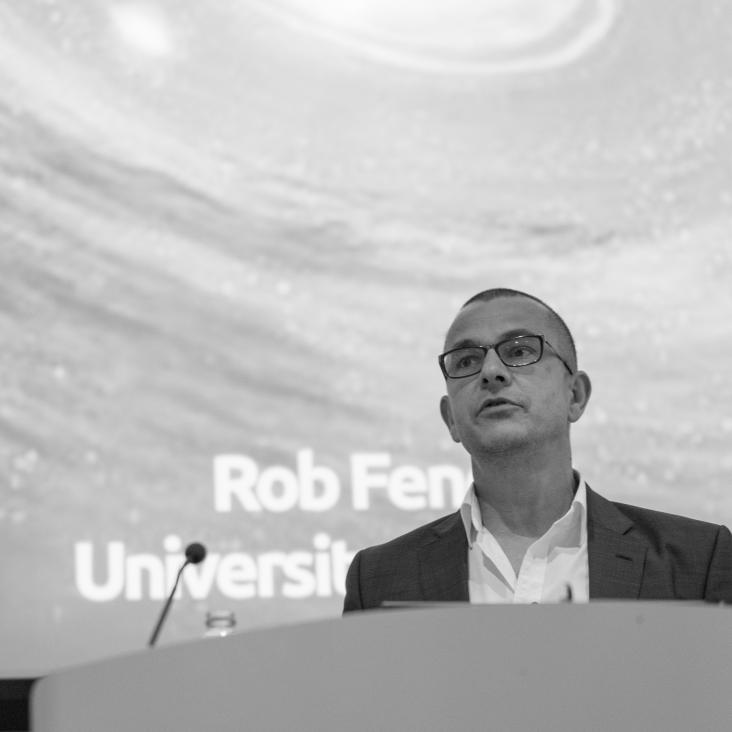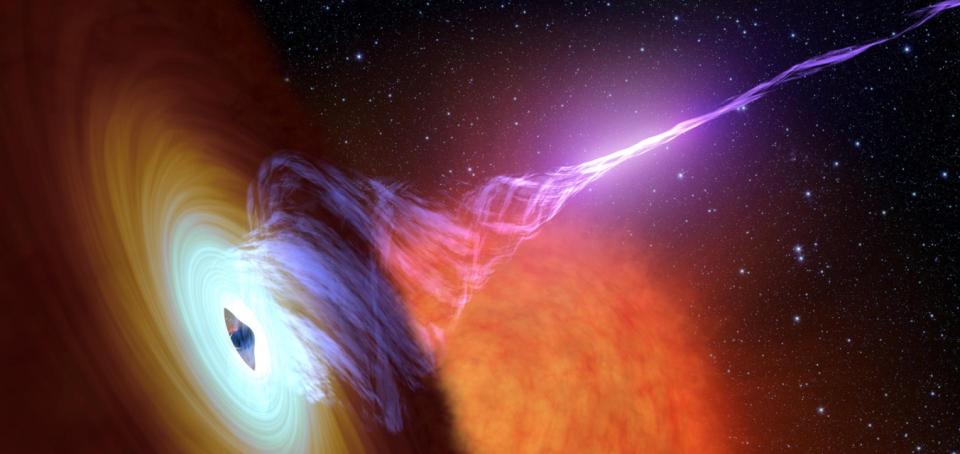Black holes in the Universe - Astronomy for All Lecture
Wednesday 10 May 2023
18:00 to 19:00, a virtual event hosted by Green Templeton College.
Speaker: Professor Rob Fender, Head of Astrophysics, University of Oxford

Black holes, conceived as mathematical possibilities centuries ago, are now established as an astrophysical reality: over 100 million black holes reside within our galaxy alone. Consisting of a singularity, where current theories of physics break down, and surrounded by an event horizon, from within which no signal can ever escape, they are quite unlike anything else in the Universe. Yet despite their mysterious nature, in the past two decades extraordinary observational breakthroughs in understanding black holes have been made. In this lecture, the speaker will present these breakthroughs, and discuss what lies ahead in the coming decades and centuries.
About the speaker
Rob Fender is Head of Astrophysics at the Department of Physics at University of Oxford. His research focuses on observations of accretion and relativistic jet formation around black holes. He led the national collaboration via which the UK joined the LOFAR project, was awarded in 2011 an ERC Advanced Investigator Grant and in 2022 an ERC Synergy Grant, and amongst other prizes was awarded the 2020 Herschel Medal of the Royal Astronomical Society for ‘investigations of outstanding merit in observational astrophysics’.
You can read more about Professor Fender here.
Please note this virtual event is organised by Green Templeton College.

